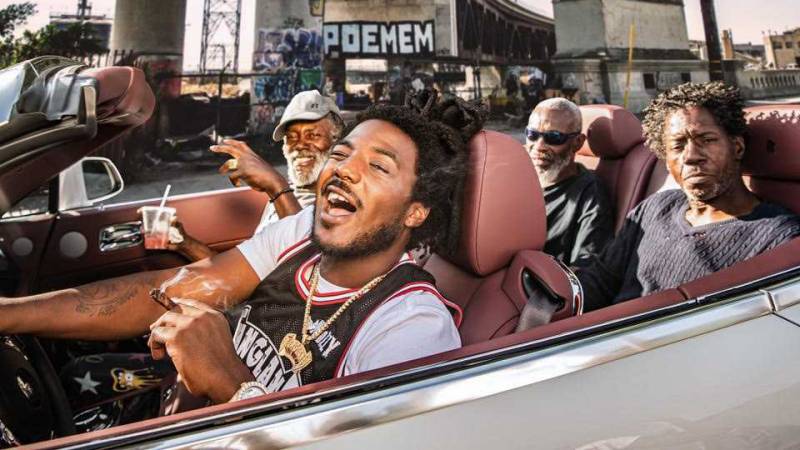With nods to his incarcerated loved ones and his own time in jail woven throughout the record, Mozzy manages to share his dream with those behind bars. Throughout the album, he recalls not having enough to buy food in jail, a backwards legal system and his grief for loved ones with no release date in sight.
Recently, the COVID-19 pandemic has made things more challenging for incarcerated people. The nearly 2.3 million people locked up in prisons and jails across the country can’t take the same precautions as those of us outside, including maintaining a six-foot distance and thoroughly cleaning hands and surfaces.
To mitigate the spread of the virus, federal facilities and California prisons went on lockdown last month. The measure is meant to protect the safety of incarcerated people and staff, but in action it looks a lot like the way facilities respond to riots. The protocol varies, but lockdown restrictions typically include an end to visitation, confining people to their cells for up to 23 hours a day and limiting access to day rooms, mail collection, phone calls and educational programs.
Without the few avenues that keep incarcerated people connected to the outside world, the isolation they feel inside a facility is magnified, with potentially harmful impacts on their emotional and mental wellbeing.
When Mozzy was incarcerated, his favorite songs became mantras that gave him fortitude. The lyrics were buoys during his stints in Sacramento County Jail, and in 2014, when he served one year in San Quentin State Prison on gun charges. “When you locked up,” Mozzy says, “you write letters to your family members or your loved ones, and you ask them to print out lyrics to certain songs.”
Under lockdown, those with access to a JPay tablet are among the only ones with access to the kind of art that kept Mozzy going.
JPay is a private communications service that allows incarcerated people to send emails, have video calls, receive money and access music, books and podcasts. The tablet averages $69.99, and users must pay every time they send an email or download media.
It’s costly—a single song can cost $2.50 and an album can cost as much as $45—but it’s all that’s available.
Incarcerated people “were the ones who listened to my music in depth—that whole system, like that whole institution. I get so much love, so much good feedback from them,” Mozzy says. “I just wanted to reciprocate.”
And he does. Mozzy often shows up for his incarcerated loved ones, among which he counts his favorite uncle GP the Beast, friends Lil Nick and Hot Boy Sean and many more. “This whole interview will be a list of people if I shouted everybody out,” he says.
He writes letters, sends photos, loads their Green Dot prepaid cards and posts bail.
“I’m the first person they call when they’re locked up,” Mozzy says. He did that before he became the rapper who was featured on the Black Panther soundtrack and got a shout-out from Kendrick Lamar at the Grammy Awards. “It’s vice versa, you look out for somebody, and then when it’s your turn to go to jail, they look out for you.”


